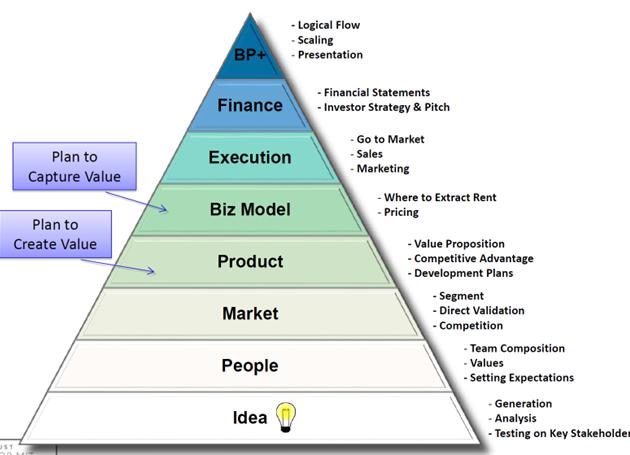Thinking like an Entrepreneur
Entrepreneurship and Innovation are considered as key building blocks of dynamic and competitive economies. Successful entrepreneurs are adept at identifying and evaluating opportunities, to build sustainable and profitable businesses. The Joint Programme between the Queen Mary University of London (QMUL) and Beijing University of Posts and Telecommunications (BUPT) is currently enhancing its successful personal plan programme to demystify the approach entrepreneurs adopt and demonstrate how the skills that entrepreneurs have and use so effectively, can be learned.
The Value of Entrepreneurship!
Technology is created or engineered, using science and maths, to solve problems within a society. As Edison stated, “I find out what the world needs. Then I go ahead and try to invent it.”
The benefits promised by any invention, i.e., the solving of problems, must be realized through commercialization, i.e., turning an invention (or an idea) into value in the form of products, services, or business models, as are economically sustainable. This task, of innovation (invention x commercialization), falls to entrepreneurs and intrapreneurs.
Is Entrepreneurship teachable and learnable?
Successful entrepreneurship requires a set of complex personal skills and traits. While a recent article speculates on the role of a parasite in making people more entrepreneurial (apparently people infected with toxoplasma gondii become less risk averse), more conventional thinking identifies several character traits that make up the so-called entrepreneurial mindset, as below.
- A high drive and determination
- A high need for achievement
- A high internal locus of control
- A need for autonomy and independence
- An acceptance of measured risk and uncertainty
- Creativity, innovation, and opportunism
The first four are partly innate and shaped by life experiences, however, the last two can be influenced through education. Opportunity identification and evaluation form the foundation of any entrepreneurial venture. This demands creative thinking and acting like a scientist, i.e. challenging and testing assumptions with structured experimentation.
In the past decade or so, various techniques and tools have been developed that allow students to gain these learnable skills through open-ended enquiry and iterative experimentation. Tools such as Alexander Osterwalder’s Business Model Canvas, the Idea Generation tools, as well as Steve Blank’s Lean Start-up methodology, combined with design thinking principles, help students develop a mindset and capabilities.
Get them out of the classroom!
Entrepreneurship is described as a contact sport, the contact being with customers and competitors. Factual knowledge, of course, plays a role in the teaching and learning of entrepreneurial skills, just as coaching athletes in strategy and tactics are useful.
However, factual knowledge must be complemented by having students “get out of the classroom” and ‘learn by doing’.
Learning by ‘doing’
Learning by doing in entrepreneurial education encompasses a range of activities starting with idea generation and culminating in venture creation (see illustration below).
Our personal development program focuses only on exposing students to methods needed at the early stages and understanding how these fit in with the whole.

© Sloan School of Management
We are getting our students out of the classroom and talking to people and potential customers, identifying needs or problems, evaluating ideas by and setting up hypotheses that must be validated or invalidated, and undertaking various cycles of experimentation, evidence-gathering and reflection. Understanding competitors and their strengths and weaknesses. Assessing if that idea could be a viable business opportunity.
The practical experience gained here is bolstered with the management and product development modules in subsequent years.
Outcomes sought
Students experience first-hand the methods required to commercialize technology or other ideas, to help solve problems for people and the planet. They learn how to develop a mindset and capabilities to spot problems, identify and evaluate opportunities. By catching them young, in the first year, we seek to encourage meaningful conversations around technology and final year student projects. Additionally, it adds to the portfolio of employability skills and helps students assess their own deeper interest in the area for further educational pursuit.